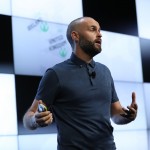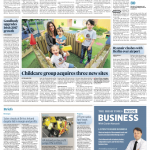In PR, television can either be a poisoned chalice or a holy grail for a client. An understanding of the role of the news editor is of critical importance, whether you are managing a crisis or looking to publicise your client nationally. In this week’s post we ask TV3 senior news editor, Joe Walsh, how he decides the agenda for the station’s news programmes and how PR practitioners can best represent their client’s interests to him.Joe has many years experience working in the media. He held the position of senior producer on TV3’s Ireland AM, before moving to Sky News Ireland as a news editor for three years. He has also worked as producer of ‘The Last Word’ with Matt Cooper at Today FM and as editor of the David McWilliams’s show at Newstalk 106.
How do you decide on what to cover?
The big question! Some stories are obvious – they have national importance and impact. Others play into themes that we are concentrating on – healthcare in Ireland / the recession etc. On a daily basis the news editor is first in and puts together the options (what stories are of interest – who would cover them etc). The early morning meeting with the 5.30 news producer then cements the day’s agenda leaving all important leeway for breaking news.
How far in advance are these planned? When does the production meeting take place?
Daily production meeting is at 9.30 am – planning meeting is at 2pm to look ahead to the next day and major items on the agenda for the next week. Big stories which are flagged in advance (budgets. elections etc) take weeks of planning. Most stories are planned the day before when the legwork is done.
To whom should pitches/ press releases be sent? Is it best to send it to an individual’s email as opposed to the general news email address?
Sending everything to the news desk email is best – specialist reporters should also be emailed. Programmes like Ireland AM, Midday etc should be contacted separately.
How do you source interviewees for segments?
From a news point of view our interviewees fall into different categories – the politician making the point, the economist saying he/she is wrong, the expert highlighting the problem and importantly the person who is hardest hit by the decision.
What makes you consider someone as a “go-to expert”?
A depth of knowledge and an understanding of the needs of television. Credibility is key – we need people who can make their argument with authority and in a manner that can be understood by non experts.
What would you advise someone appearing on TV for the first time? How should they prepare?
For magazine programmes knowing the style of the programme is helps. Is it relaxed and informal with a discursive style or more news orientated where the time to get your point across is limited? Find out if there are other guests – who will be doing the interview and what the production team want from the interview. Ask what to wear – this is becoming more important in the era of virtual sets.
What makes a TV interviewee memorable?
A strong personality, a heartfelt story, a new disclosure, an original opinion, a complex situation explained – many things can make an interview stand out from the crowd but it really is the ‘good story well told’ factor that will hold viewers attention.
What’s the best way to pitch a story i.e. offer the angle, interviewee(s) and ideas for footage?
Pick up the phone and call. If the news desk is not interested (and we are most of the time) then we can put you on to a show that might be. If footage can be offered then it’s a major selling point particularly for programmes. And if you can offer those pics exclusively then all the better!
If located outside Dublin is it still advisable to contact the main news desk or do you prefer contact to be made with regional reporters?
Both is best. The regional reporter will then make the contacts and ‘sell’ the story to the news desk.
If sending in a news release is there a format you prefer?
The news desk is nearly always a very busy spot – any releases that take time to open up tend to be a little annoying.





